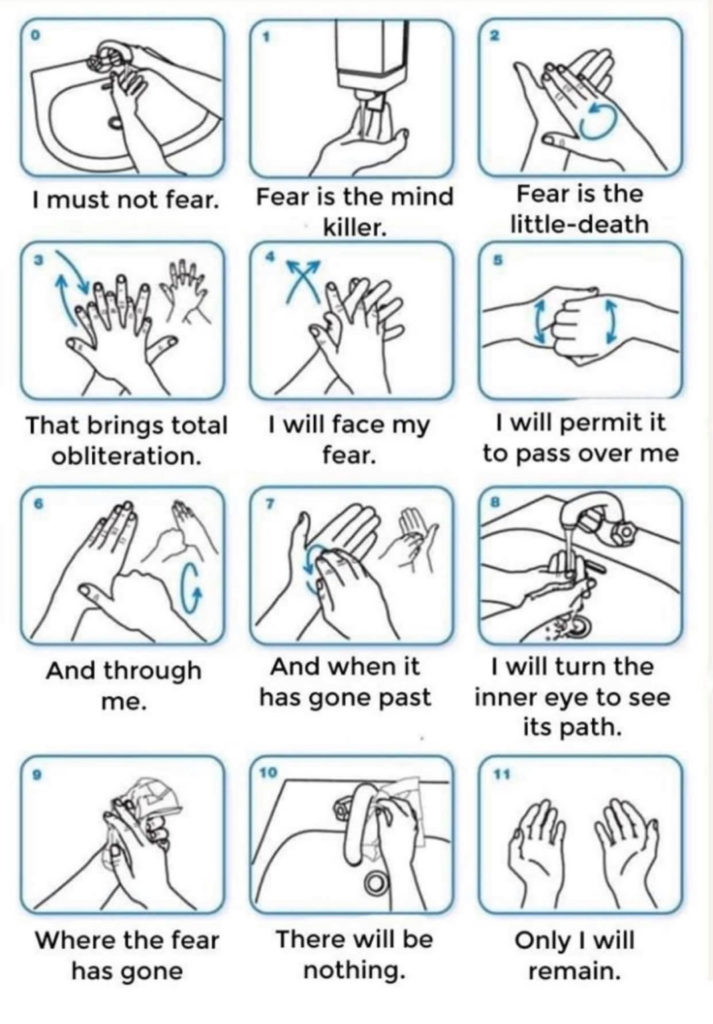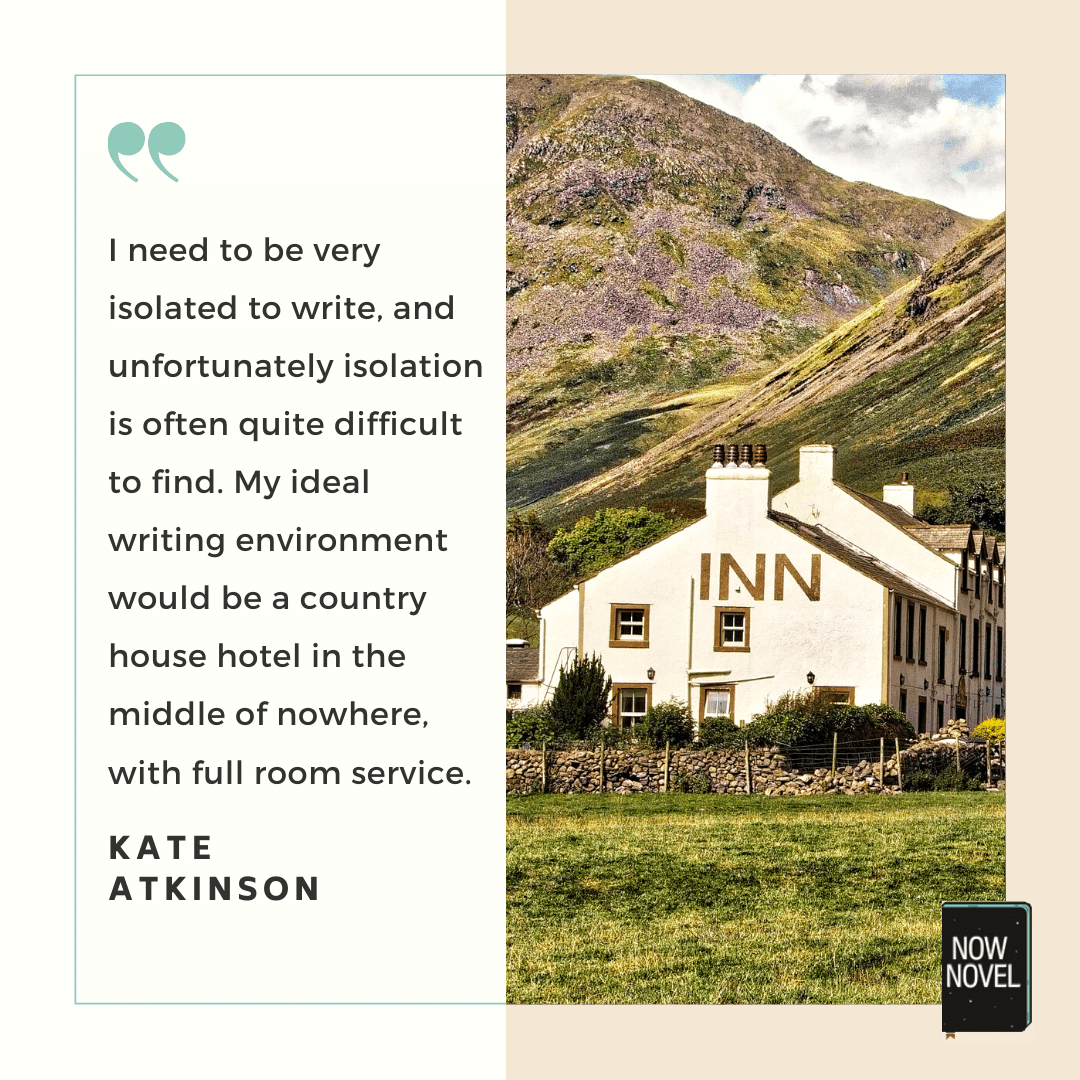How do we write and create during uncertain times? Writing under lockdown or self-isolation during the Coronavirus pandemic may feel both impossible (due to lost focus or urgent priorities) and a necessity. Having a creative outlet, distraction and a way to play is good for mental health. Here are 7 positive things to remember:
1. Creativity and imagination endure tough situations
There’s a poem by the Polish Nobel laureate Wisława Szymborska about the necessity of creating, of daring to dream, even under difficult circumstances.
In ‘The End and the Beginning’, Szymborska writes:
After every war
Wisława Szymborska, ‘The End and the Beginning’, translated by Joanna Trzeciak, available via The Threepenny Review
someone has to clean up.
Things won’t
straighten themselves up, after all.
After describing all the activities that resume as time passes, the poet ends with this final stanza:
In the grass which has overgrown
causes and effects,
someone must be stretched out,
blade of grass in his mouth,
gazing at the clouds.
Sloane Crosley has written a good article on the discomfort of ‘using’ human tragedy for ‘material’ (one of the cons she raises is that writing produced out of a disaster, such as 9/11, does not always age well).
Yet we’ve also seen accounts of how artists and writers, including Shakespeare, survived and continued to create under even harsher conditions than the COVID-19 outbreak.
Creativity and play endure because they must. We may turn to solitary ideas and projects we are passionate about during difficult times for comfort, too.

2. Writers can make the most of quarantine
George R. R. Martin, author the Song of Ice and Fire series adapted into the hit TV series Game of Thrones, wrote a brief update on his website simply titled ‘Strange Days’. In it, he describes how he is putting self-isolation to good use.
After reassuring his readers that he is fine and has taken appropriate social distancing precautions, Martin writes:
Truth be told, I am spending more time in Westeros than in the real world, writing every day. Things are pretty grim in the Seven Kingdoms… but maybe not as grim as they may become here.
Via ‘Not a Blog’, George R. R. Martin
Despite the stress and fear Martin refers to (he also shared the below hand-washing guide which pairs diagrams with the ‘Litany Against Fear’ from Frank Herbert’s Dune), the author also suggests the beautiful respite worlds of the imagination provide us.

3. There are many ways to help and get help
From stimulus packages to special funds set up to help professionals in the arts, there are new ways emerging all the time for writers and others to come together and support one another.
In the UK, for example, the Society of Authors (of which Philip Pullman is the president), launched a £330,000 emergency fund for professional authors. It plans to offer grants up to £2000.
Writers and other creatives are also finding different ways to reach out and give access.
For example, children’s author and illustrator Mo Willems began hosting a daily YouTube series called ‘Lunchtime Doodles with Mo Willems!’ The author put out this invitation to his viewers: ‘You might be isolated, but you’re not alone. You are an art maker. Let’s make some together.’
4. There is more time to read
Many people have been required to work from home, with entire cities under total lock-down. There are some advantages to more businesses embracing flexible working hours and locations.
One advantage is having more time (without the work or school commute) to read.
Read the 800-page epic you’ve always wanted to finish. Read to a child, sibling, friend, or partner you’re in lockdown with.
Reading is vital for developing our own writing ability as well as keeping our minds engaged and active during times of solitude.

5. There are alternate revenue streams for writers
In the Guardian article above, many professional authors shared their concern at losing public engagements due to necessary bans on large public gatherings.
Although school talks, book tours and other public engagements are important revenue sources for professional authors, there are other ways to keep earning during difficult times.
Thanks to the internet, we have platforms such as Patreon where you can offer supporting subscribers rewards (for example, a monthly story, poem or other benefit) in exchange for their contribution.
Use every resource at your disposal. Use alone time to connect over the distance. Build an audience while doing what you love.
6. We can find inspiration in unlikely places
Self-publishing platforms such as Amazon’s Kindle Marketplace have been flooded with books about Coronavirus.
Now might not be the time to try to cash-in on the pandemic as primary material. Many may view a more shallow or cynical attempt to capitalize in bad taste.
However, there is inspiration in the many touching and inspiring articles to arise from the crisis.
For example, enterprising Italian engineers 3D-printing essential respirator parts (though they were threatened with legal action by manufacturers). Or people singing together from their balconies under lockdown.
These stories could inspire novels in their own right.
Perhaps in a romance, two strangers meet after one joins another’s singing on their balcony, having overheard the first from a neighbouring apartment. No pandemic has to necessarily feature in the story itself. Yet inspiration – in acts of courage, ingenuity, optimism, creativity – is all around.
7. We may learn and develop new skills
Parents who have never home-schooled their children before are learning the creative demands of keeping lessons engaging and inspiring.
People are finding technological solutions for new challenges too, like the Cypriot man who used a drone to take his dog for a walk.
Whether due to necessity or choice, now is a great time to learn a new skill, one that you can apply to your writing.
Join a supportive, constructive community of writers and share discussion and writing for feedback.

